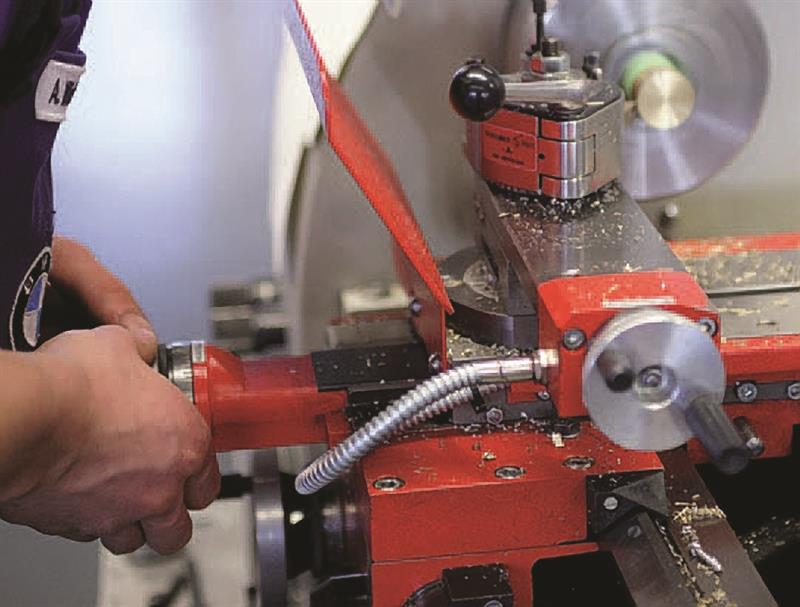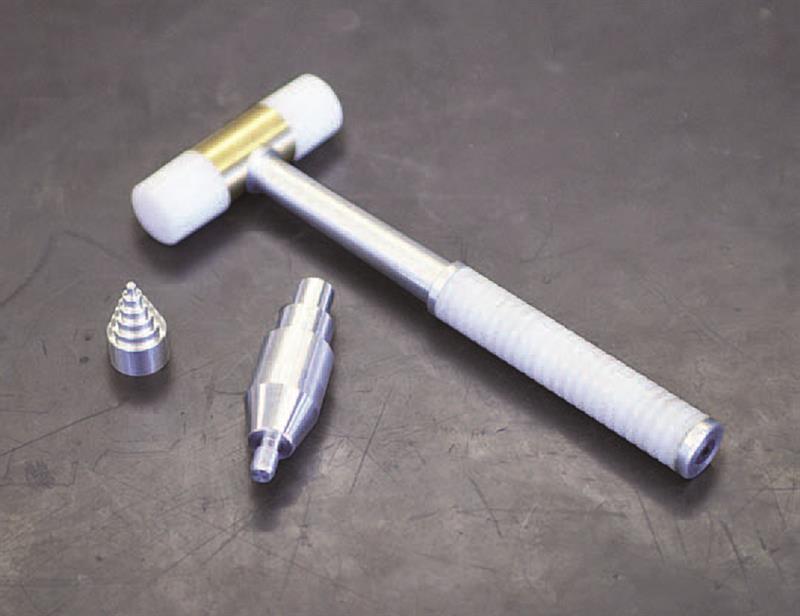TaLEnt is intended to promote the talents and strengths of apprentices and prepare them for their future working life in the best possible way. The three-year training programme is divided into three phases: basic, further and special qualification. During the first year, apprentices also gain an insight into related occupations and, in certain circumstances, can change to another technical occupation in the following year.
An intermediate examination takes place after 18 months’ training, and in the final three six-monthly periods apprentices deepen their specialist knowledge, acquire specific know-how and start their integration into everyday working life. Successful training ends after three years with a final examination. Some graduates can benefit from BMW’s SpeedUp Bachelor’s programme, studying at an applied sciences university.
For apprentices in the ‘advanced technical college entrance qualification’ (DBFH) programme, there’s a shorter training period of two-and-a-half years, followed by an examination, after which they attend a technical college/vocational college (TC/VC) two days a week. For these apprentices, the last six months involve full-time attendance of the TC/VC prior to the award of a certificate of entrance qualification for studies at applied sciences universities.
Underpinning all apprentice training at BMW’s Munich plant are several recent Emco milling and turning machines. In training workshops, typically older, often generally overhauled production machines are used, but those responsible for training at BMW’s Munich plant took another view.

Each of the apprentices has their ‘own’ lathe
To learn the basics of machining and producing a part to drawing, manually-operated machines are thought best. Considerations in the selection process were available budget, of course, but also sturdiness, since learners often drive their machines ‘flat out’. So equipment selection parameters were: as resilient as possible, small in size, but cost-effective. The machines should also be identical, as this, the trainers felt, would exert a positive influence on the apprentices by underpinning equal competitive conditions, for example in terms of the precision of the test workpieces to be produced.
Emcomat 14-D lathes and Emcomat FB-3 L milling machines were the selected equipment, with just under 20 machines of each type at Munich now. All the apprentices work on new machines, with each apprentice having their ‘own’ Emcomat 14-D lathe for learning on.

Test pieces are produced by apprentices as part of their training
In the two first weeks of the first year of training, the focus is on three test workpieces: a stepped round pyramid, a cylinder with a cone and thread, as well as a hammer. The pyramid and the cylinder are made of aluminium, but the hammer is a mixture of plastics, aluminium and brass. The milled test workpieces are made of aluminium and steel.
BMW’s trainers assess how the apprentices transfer the geometries from the drawing into the workpieces, as well as how well they adhere to the required precision – the target is h7. Apprentices acquire the hammer as a souvenir of their first solo metalcutting work.This article was published in the March 2017 issue of Machinery magazine.




